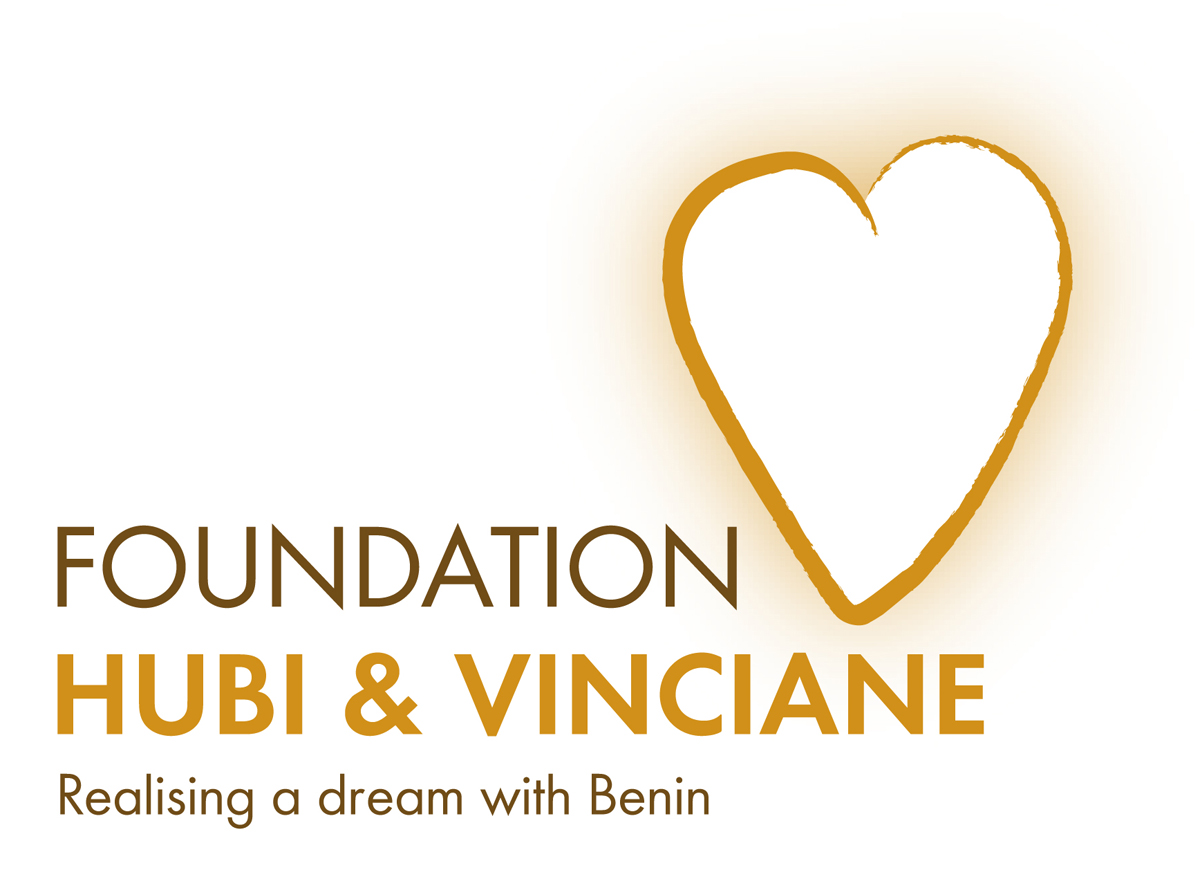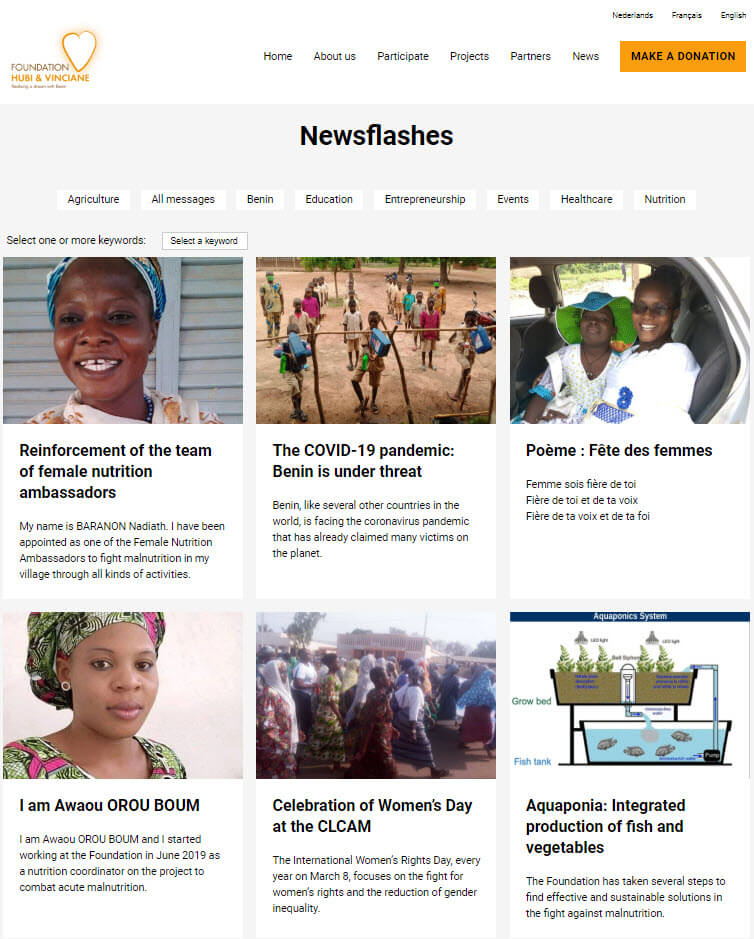Working visit to Benin in Corona times: an enlightening experience!
At the beginning of March, I flew with two other members of the Hubi & Vinciane Foundation to Cotonou for the biannual working visit to our local team in Parakou.
As usual, the agenda was full: every minute in Benin had to be put to good use. At that moment, the first Covid-19 patients were detected in Belgium. We had no idea how important the impact of the virus was going to get.
The Beninese authorities seemed to take this virus very seriously: we were asked about possible symptoms of the disease, and we had to disinfect our hands before entering Benin. If the welcome was a bit different than usual, we quickly forgot about it in the joy of seeing each other again and in successive meetings.
We shook many well-washed hands; those of the mayors, NGO employees, zone chiefs, hospital directors and doctors, the bishop and the vicariate, Unicef employees, teachers, not to mention our own collaborators, …
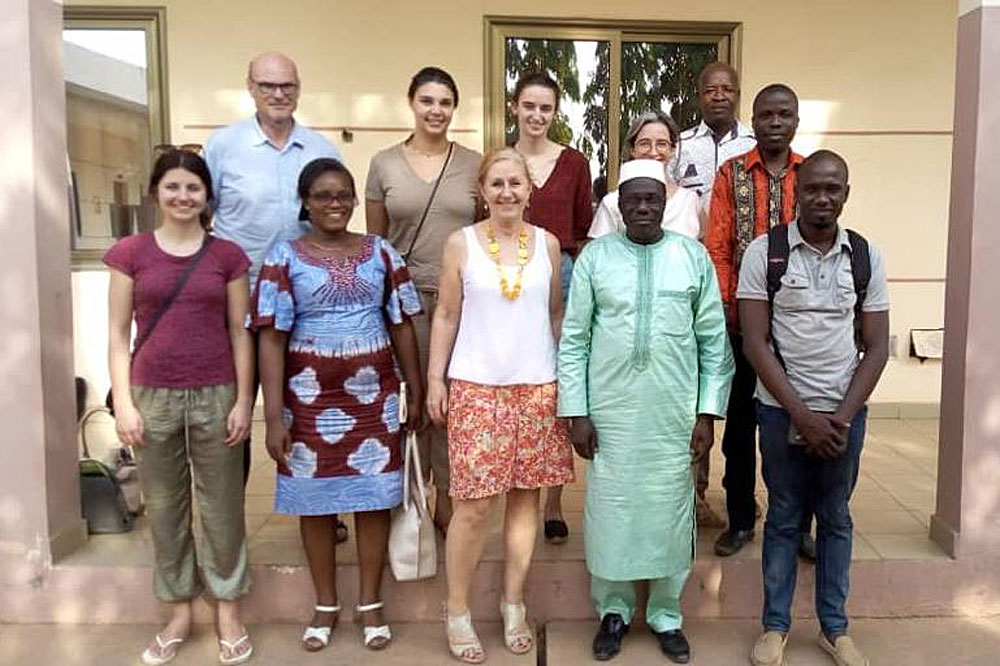
As always, we tried to optimize our collaboration and strengthen our network according to the motto “strength in numbers”. Our trip went very well: the sun was shining (the rainy season had yet to start), the roads were not too bad, our tight schedule was kept to a minimum, contacts were satisfactory… Life was good in Benin …
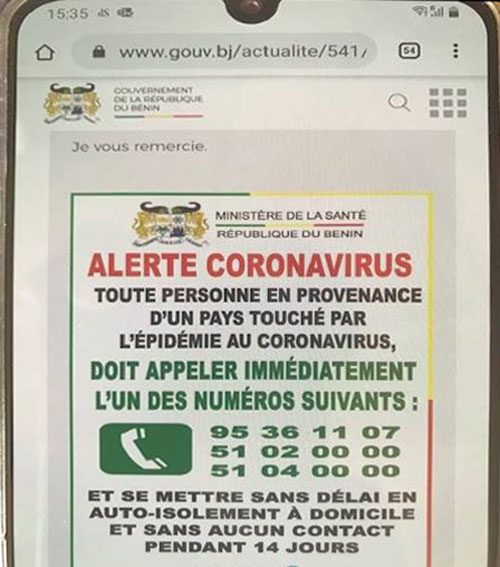
In the meantime, strange messages were coming in from Belgium about empty shelves in shops and a shortage of toilet paper, home-made masks and the setting up of a Corona crisis team. We had the feeling that something very worrying was happening in Belgium, but we didn’t really realize it. During our second week in Benin, the Belgian embassy informed us of the “Corona alert”. A message from the Beninese government indicated that any traveller coming from a foreign country had to spend 14 days in quarantine before being allowed to move freely on the territory.
As we had been in Benin for a few days, this message did not concern us directly, and we were able to continue our visit. However, we noticed a certain reticence about “people coming from abroad”. We were no longer shaking hands, we had suddenly become potential carriers of the virus. Our anxiety grew when we were told that an important meeting had been cancelled. When students and partners who had just arrived were forced to return to Belgium or to stop their trip, we were forced to take it seriously. We were beginning to worry about the continuation of internships and projects in Benin, while in Belgium there was panic.
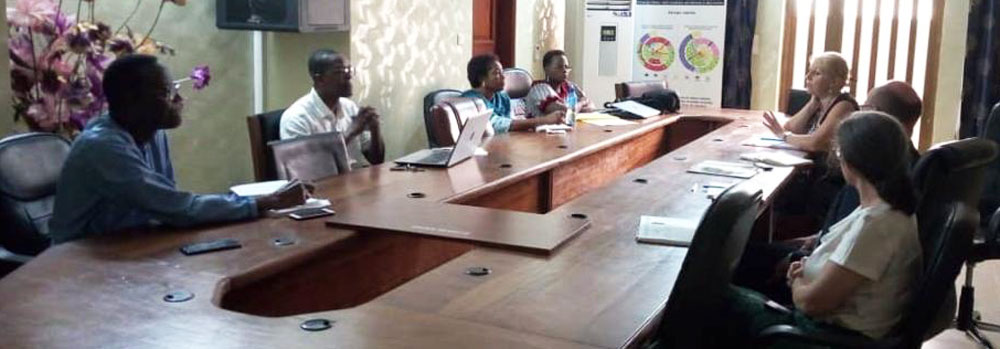
Our collaborators and the population of Benin seemed less surprised by the virus. One could say that they are more used to it. Many viruses have already been fought in Benin in recent years (the Lassa virus, among others). These kinds of epidemics are part of everyday life there. They have experience of it and seem to know how to react.
“Hand hygiene: of course! Quarantine: of course! You need what you need and for as long as you need it,” say the Beninese resignedly.
Their attitude is instructive. It was obvious to me: we have to work together to overcome this virus and learn from each other. Let’s take up together other challenges that are not influenced by the virus, that do not need a vaccine, but for which we can already take action …
It is because I can contribute to the fight against malnutrition, because the solution comes down to simple food, that I volunteered for the Hubi & Vinciane Foundation and that I’m taking part in this working visit. High five!
Ingrid Hofkens
